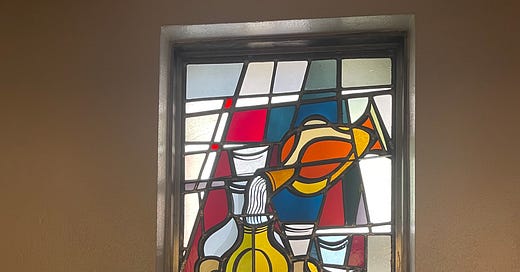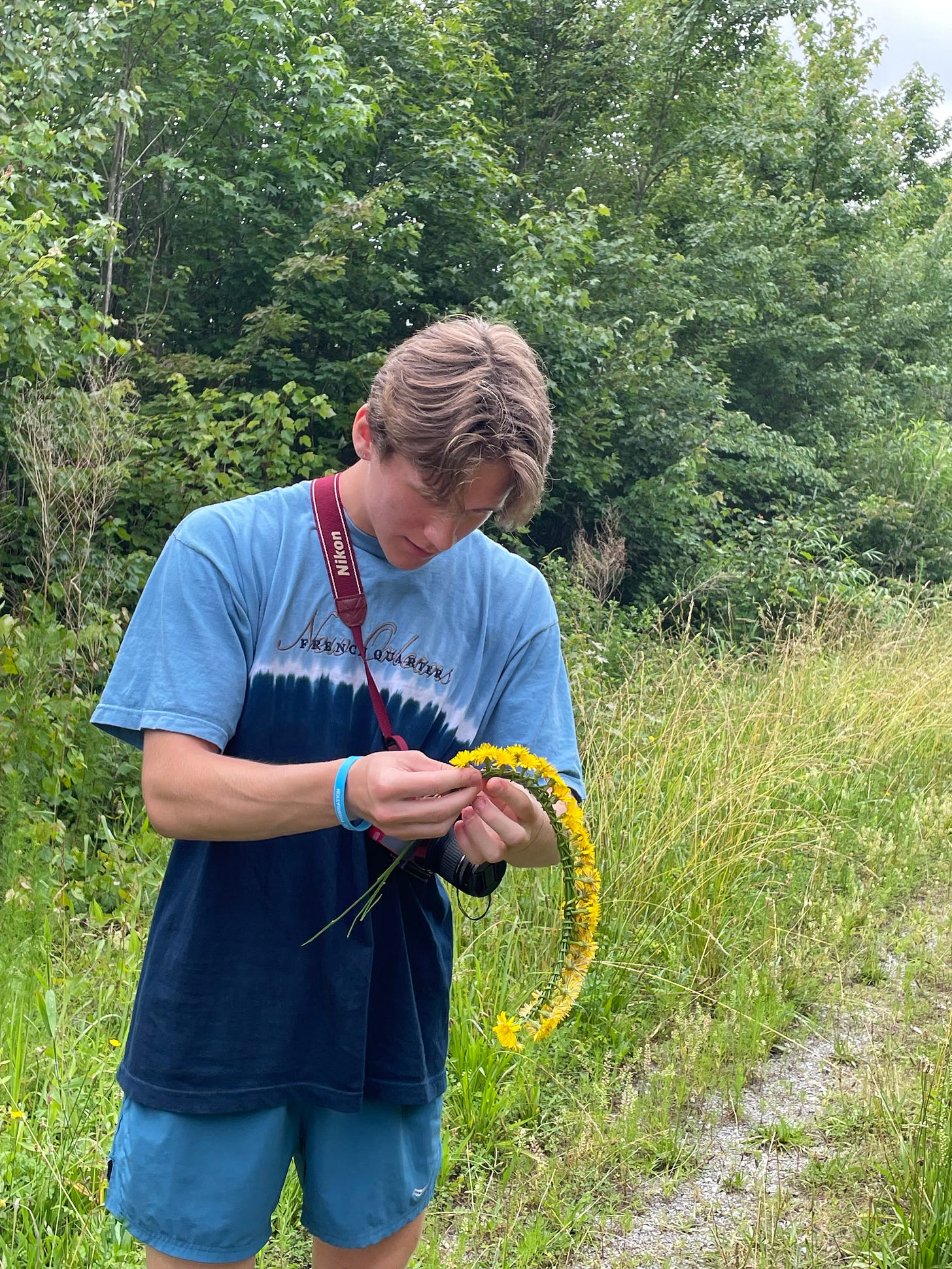Seven times the wonder & the reckoning speak out into her story, its repetition like the gallop of a warhorse heading into battle to find idols afield (forever breathless), among emptied clay pots to condemn the living. Horsemen cry, Zimri! from every mount, every manned chariot. His sons have set the table, and who eats with anyone more than given family— lifting glasses, lifting voices above the din— as dogs devour fallen scraps? The laughter will not last for those who do and do not come in peace.
NOTES
*2 Kings 9:17ff asks seven questions about peace. Yet the stories in it are extremely violent. But guess what? Naboth is avenged. Jezebel meets her end. The next chapter will chronicle the end of Ahab’s line — the wicked king we’re introduced to at the start of Elijah’s story in 1 Kings. There’s a full-circle feel to this point in 2 Kings, as far as the lives of Elijah and Elisha. Elisha’s death is recorded a couple chapters later, in 2 Kings 13:20 (just about the simplest telling one can imagine, until a corpse gets thrown into Elisha’s tomb and comes back to life!).
~~~
*Next Wednesday, Eeeeek! is the final poem in this series. Thank you for reading along with me, for commenting, for sending me emails, for buying me coffees. Now that I’ve completed all 33 poems (a nod to Dante) for this poetry collection, with the working title,“Yahweh Loves a Desert,” I’ll continue to edit and refine, and to seek a publisher. Pray for me! I believe this series deserves life beyond this newsletter!
*The top photo was taken at a lovely church in Minnesota, Restoration Anglican. I had the joy of speaking at their women’s retreat this year, on — you’ll never guess — the topic of Questions. I loved this stained glass in their sanctuary. It’s a simple image, but so many stories from the Scriptures spring to mind — the fulfillment of them all is probably the Wedding at Cana, when Jesus turns the water into wine, but it also takes me back to when Elisha tells a particular widow to borrow empty jars from all her neighbors, and to “pour out” from her own small jar of olive oil, into these collected jars. She “kept pouring” and they were all filled! This whole Prophet series project has been a kind of pouring out for me, and while I do indeed feel somewhat emptied and lost as to what I will write next, I have received so much in this work, and so I’m also filled up.
— for heaven will have / its overflow. You have / only to receive.
~~~
p.s. I changed my profile pics here, but it’s still me! I recently chopped off much of my hair, and the pics I had on here were from more like 2 years ago, so it was time. In the primary one, I’m wearing a dandelion crown my son made for me on a butterfly walk we took together a couple weeks ago, in The Dismal Swamp (yes, that’s its real name).






What a loaded question to explore: “Do you come in peace?” This poem has such powerful and haunting imagery, an impressive “galloping” rhythm, and expresses so well the tensions between: “the wonder and the reckoning,” peace and judgment, laughter and horror, etc. Not to mention the New Testament allusions. Well done!
Thank you for connecting Jezebel to her fellow- Syrophoenecian relative who asked Jesus for scraps from the table. It makes me wonder if the demon afflicting the later woman's daughter could be associated with the earlier woman's devotion to Baal and Asherah.